Why the fracking fight in Kirby Misperton rumbles on
- Published
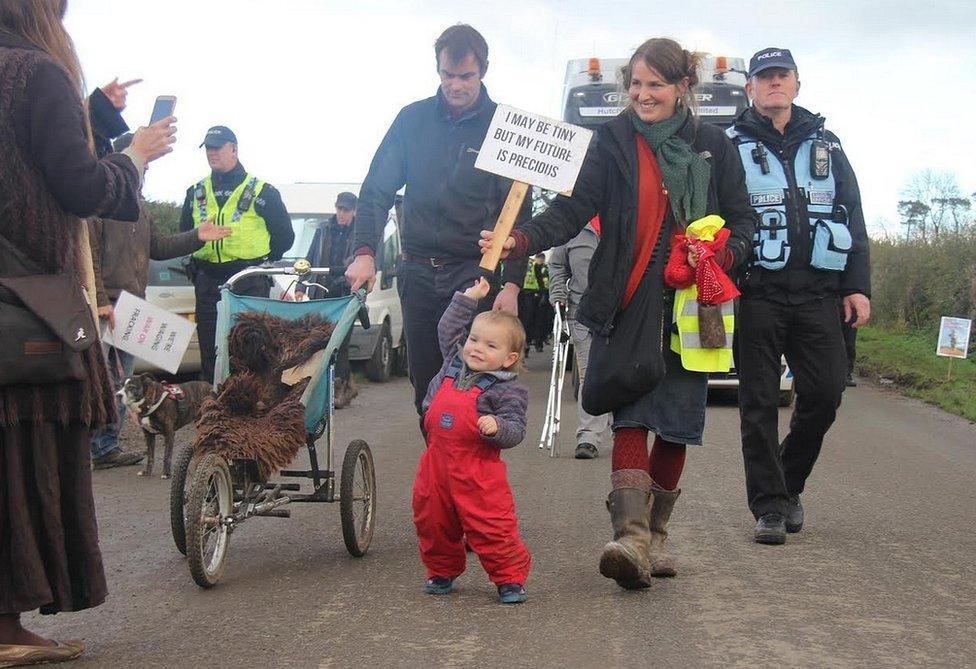
Protesters have taken part in "slow-walk" marches in front of convoys bringing equipment to the KM8 well
It was a village that was at one time known only for its proximity to the Flamingo Land theme park. But for months now, Kirby Misperton has become synonymous with the divisive world of fracking.
"Being a single parent, my 'arrest plan' is stuck on the fridge," says Carol Towner.
"There's medication details, there's my children's bedtime routines, my work diary details. The policing is so erratic that you just don't know."
The sales rep has parked her car on a grass verge near the entrance to Third Energy's KM8 well in North Yorkshire for two months, turning it into a makeshift office.
She says it has allowed her to protest every day since preparatory work at the fracking test site, near Kirby Misperton, began in September.
"I've spent the whole day today in my car crying, as I'm seeing trucks roll past me and nothing I'm allowed to do can stop it," she says.
"Whatever happens here, whichever way it goes, this is history in the making."
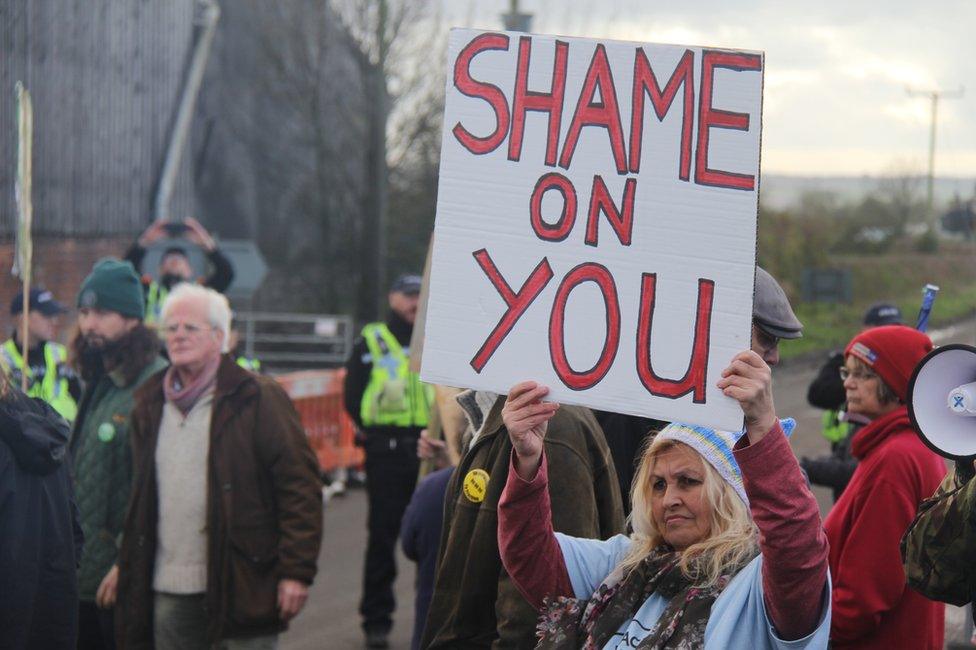
People waving banners have stationed themselves outside the KM8 well since work started in September
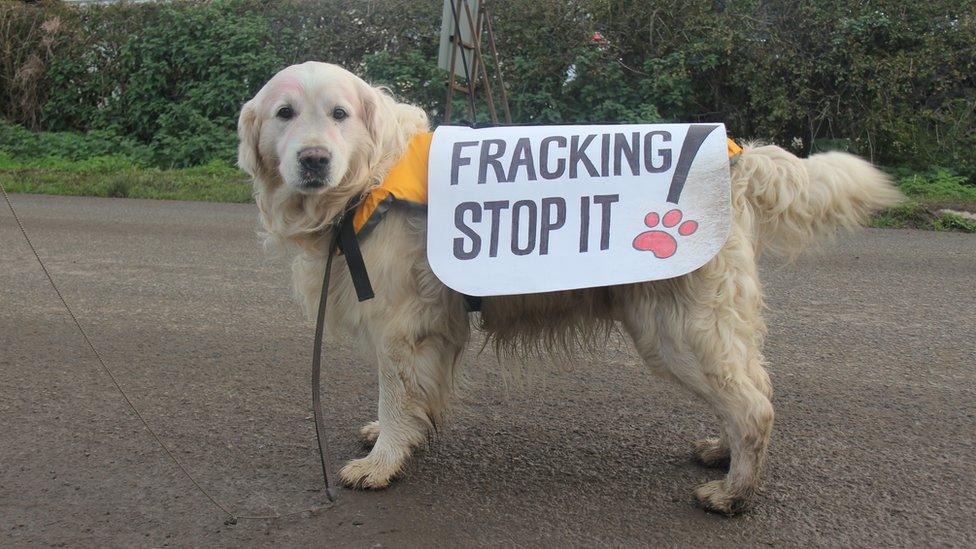
Tom the dog is regularly walked by his owner past the site's entrance
Kirby Misperton is a rural village on the edge of the North York Moors national park and home to just 370 people.
Since May 2016, when the gas company Third Energy was granted permission to frack for shale gas at the existing two-mile deep well, its residents have become accustomed to the regular rumble of trucks.
Habton Road, once an unremarkable country lane with a handful of farms and bungalows, is now lined with police vans, caravans, tents and banners bearing anti-fracking slogans.
"It's completely taken over our lives. I didn't retire to protest this, but this is what we feel is important to do," says 70-year-old Peter Allen, who has been protesting outside the gates on a daily basis.
"This is going to industrialise the area, meaning increased traffic, infrastructure, vastly increased pollution... it means the destruction of the ecology as we know it now.
"For future generations, this place isn't going to exist any more."
What do the protesters in Kirby Misperton say?
Fracking - which involves drilling down into the earth and directing high-pressure water at the rock to release the gas inside - has not taken place in the UK since 2011, when it was found to be the probable cause of minor earthquakes around a test site on the Fylde coast.
Though it awaits the final green light from the government, Third Energy is ready to test frack after North Yorkshire County Council approved its plans - prompting protesters to set up a "protection camp" two miles away.
For months now - and several times a day - police officers form a line along the road shortly before a convoy of lorries carrying equipment rolls down the hill and heads through the gates.
Cries of "shame on you" erupt from those on the picket line, where banners are waved and mobile phones held high to film the scene.
Every movement of both protesters and police is recorded, with both sides waiting for any wrong move by either party.
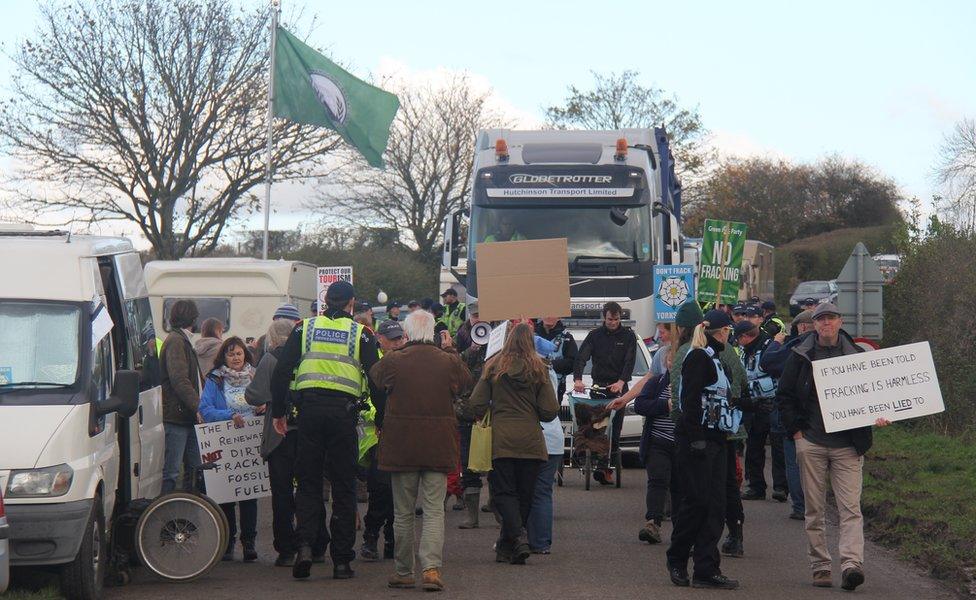
Habton Road is regularly lined with caravans, police vans and tents
Jacqueline Brooks runs a makeshift cafe at the gates with her husband, Jim, handing out teas to weary protesters.
She made headlines in October when a photo of her being dragged away from her stall by police hit the front pages.
"The crowd starting singing, 'Jackie put the kettle on', the second verse was 'coppers took it off again'," the 79-year-old recalls.
"They marched me off eventually. Two people sat me down, I was shaking at that point, and said, 'do you want a cup of tea?' I said, 'yes please'."
North Yorkshire Police said she was asked to move away from a nearby pallet tower after concerns about the structure's stability.
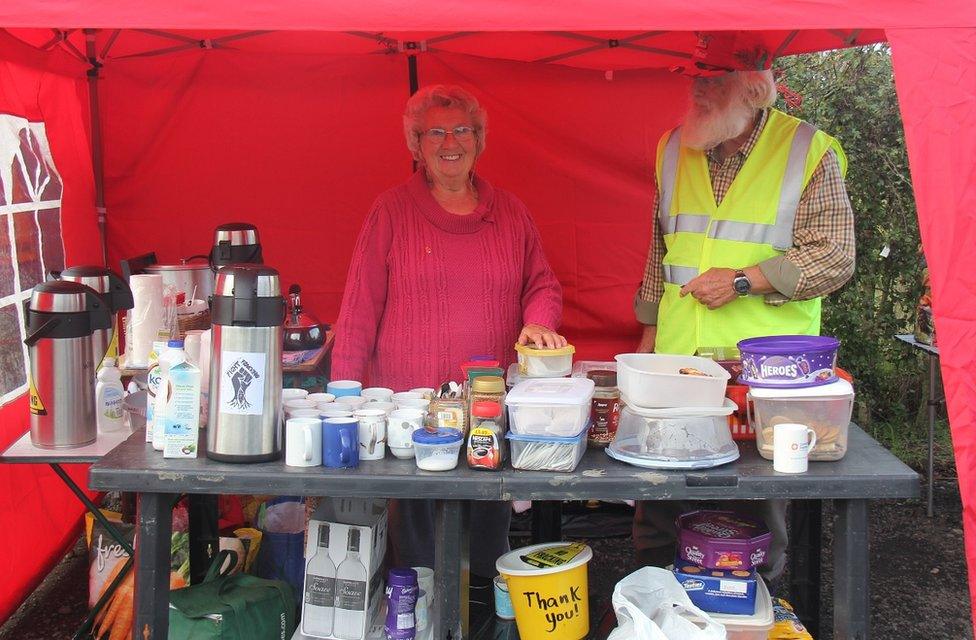
Jacqueline Brooks, pictured with her husband Jim, made headlines in October
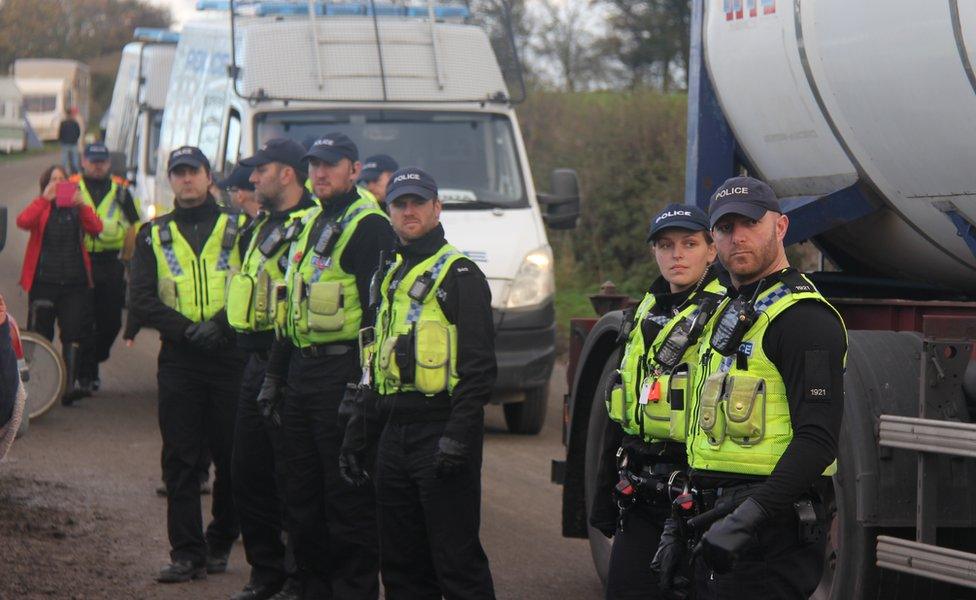
North Yorkshire Police officers help to keep the road clear as lorry convoys enter and leave the well site
The force said providing sufficient officers to attend each day had been costly, with concerns the resources required would affect policing across the rest of the county.
Supt Lindsey Robson said it was their duty to make sure people protest safely and to carry out their duties impartially.
Sheep farmer Matthew Trevelyan watches from the side of the road as another delivery of drilling equipment approaches.
Though he lives eight miles from the site, he regularly protests.
"This is the front line of fracking in the UK, we're at that stage [where] any day now, we're going to get fracked," he says.
"This is an area that isn't used to protest and a lot of people think, 'you can't stop this' - they've given up hope. I've still got massive hope that this can be stopped."
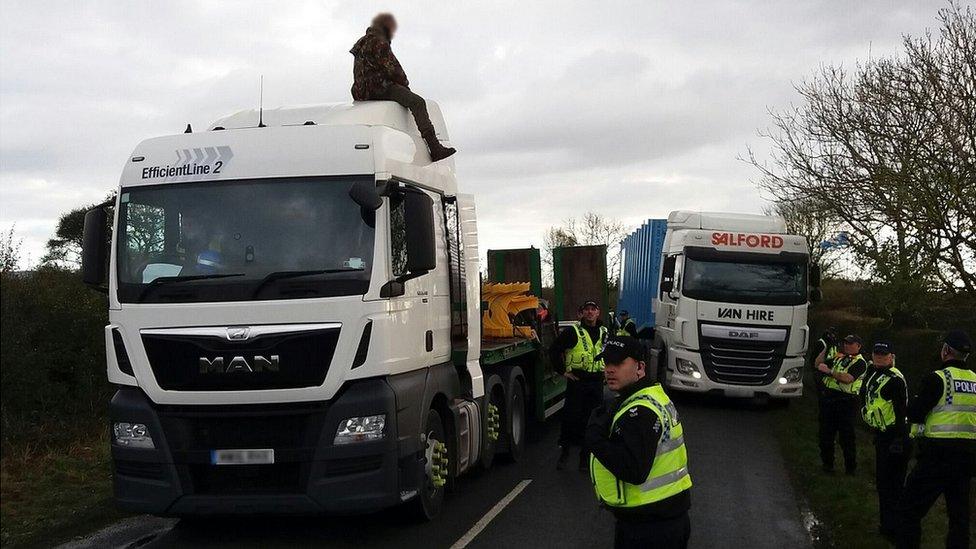
Roads around the village have been closed due to the actions of some protesters
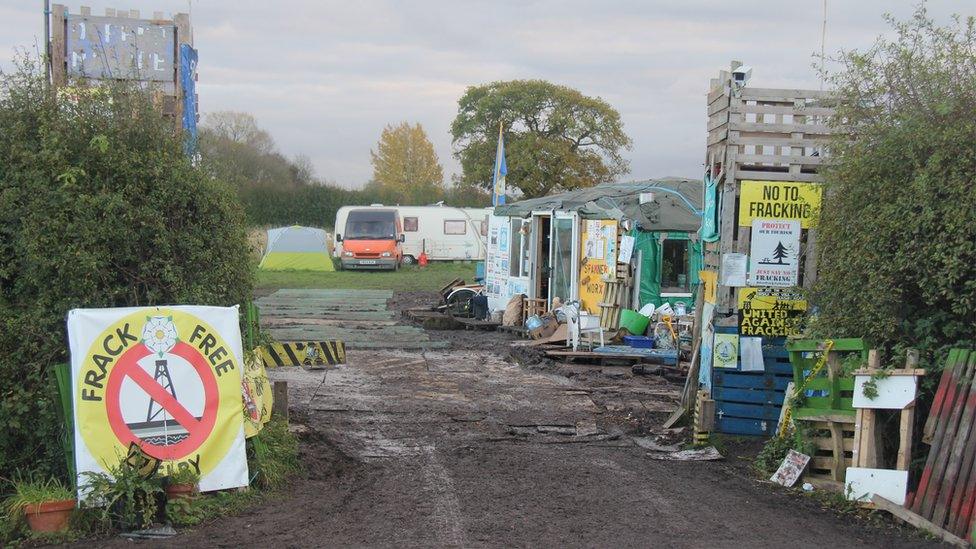
Anti-fracking protesters set up a camp in the village
Away from the site, some villagers who initially supported the protesters have scaled back their support.
They say they have been affected by the disruptive tactics of some protesters who have blocked the roads by locking arms, sitting in wooden towers and climbing on lorries.
Ruth Hardie moved to Kirby Misperton a year ago and is already looking to leave.
"Road closures are the last thing I think of when I go to bed at night and the first thing I think of in the morning," she says.
"By all means protest, just do it in a way which isn't putting lives at risk. In terms of access for emergency services, it's a matter of time until it becomes a serious matter."
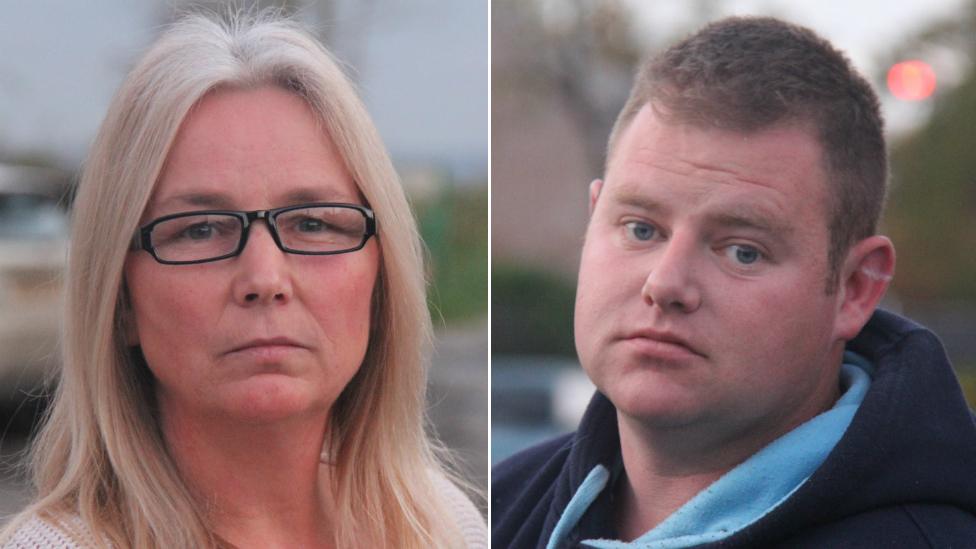
Ruth Hardie and Jack Atkinson, who live in Kirby Misperton, have been affected by the disruption
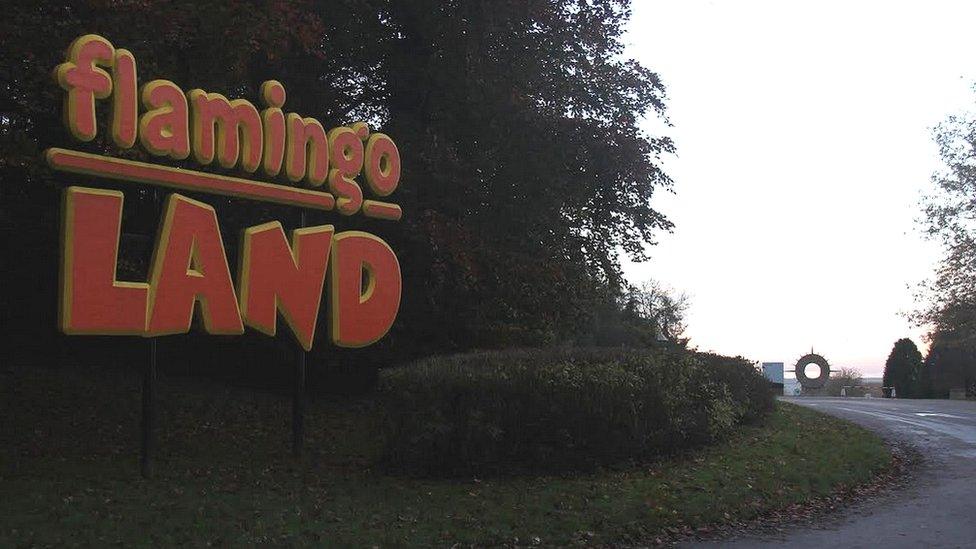
Kirby Misperton is also home to Flamingo Land, one of Yorkshire's biggest tourist attractions
Others feel the anti-fracking message is being distorted due to the "extreme" actions of some protesters.
Jack Atkinson, who has lived in the village for six years, thinks it is "getting out of hand".
"I'm all for free speech, but there's a line, and they've well and truly crossed it. They're a long way from that line," he says firmly.
But Mr Trevelyan, who represents the Farmers Against Fracking group, disagrees.
"We're sympathetic to the people who feel inconvenienced by the protest, but being on the front line on this issue means [inconvenience] is going to happen."
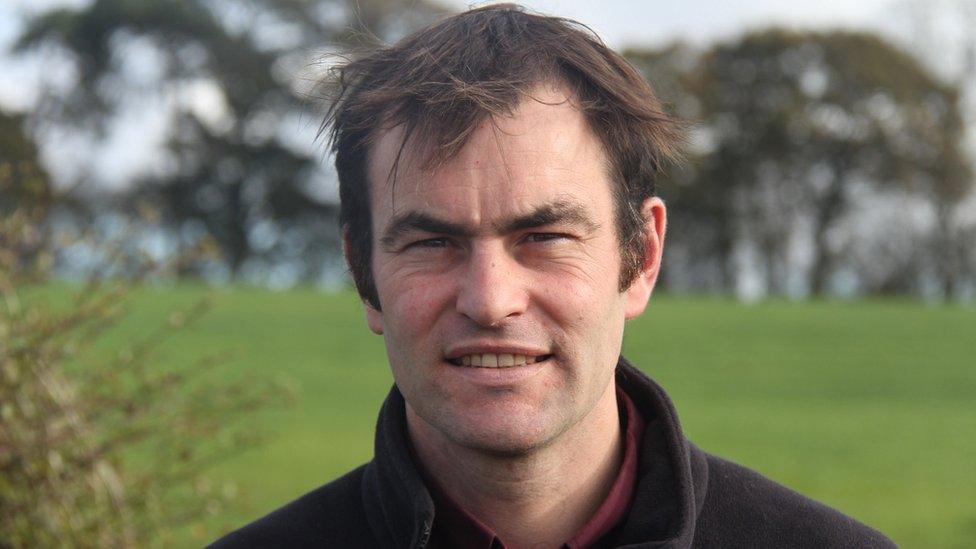
Matthew Trevelyan feels fracking will damage the area's reputation for food and farming
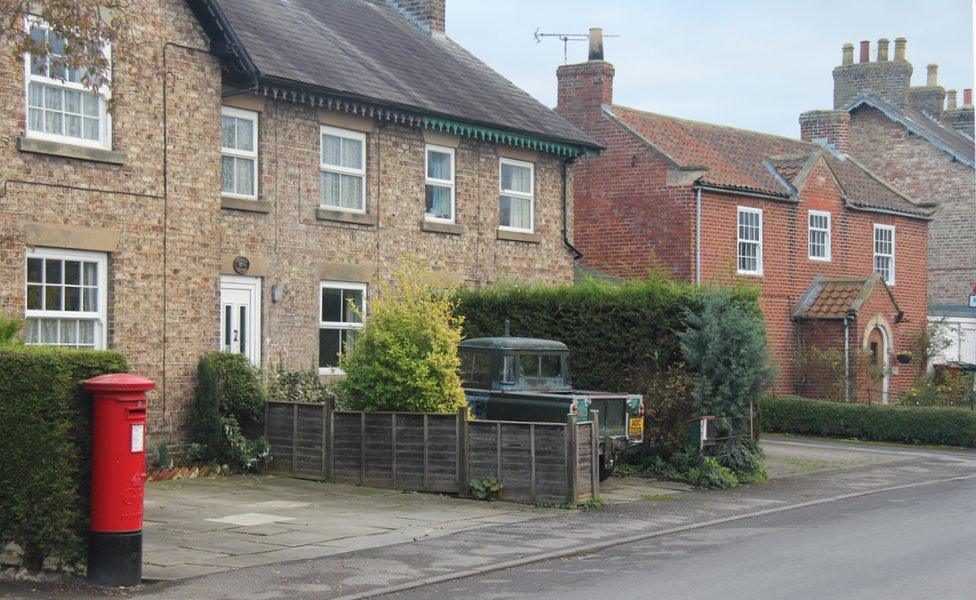
Kirby Misperton, which is home to 370 residents, lies south of Pickering in the district of Ryedale
There have been 70 arrests at the protest site - ranging from alleged offences of wilfully obstructing the highway, to obstructing a police officer and assault.
Protesters claim officers have unfairly restricted their demonstrations to a handful of "slow-walks" in front of the approaching lorries.
But Third Energy remains adamant there would not have been a negative effect on the community had protesters "remained within the law".
"We respect the right to lawful and peaceful protest but we have the equal expectation that local residents should be able to go about their daily routines and legal business without hindrance," a spokesman added.

Why is fracking controversial?
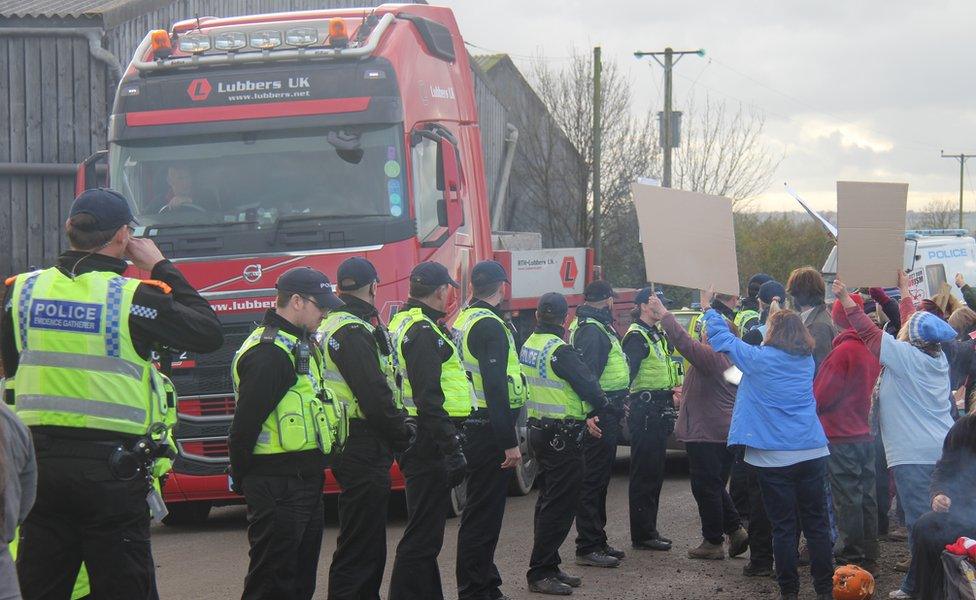
Supporters say the fracking of shale gas could contribute significantly to the UK's future energy needs, but the method has raised concerns
One is that is uses huge amounts of water at significant environmental cost
Another is the use of potentially harmful chemicals which it is feared could escape and contaminate groundwater
The industry says pollution incidents are the results of bad practice, rather than an inherently risky technique
Seismologists found fracking near Blackpool was the "highly probable" cause of two minor earthquakes

Throughout the application process, Third Energy has said its operations would be carried out without disruption and with minimal impact on the local community and environment.
On a national scale, the latest government figures, external suggest public support for fracking is currently at an all-time low, with 36% of respondents to a survey opposing it, 13% backing it and 48% neither supporting or opposing it.
For long-time resident Hazel Winter, the fear is allowing drilling in Kirby Misperton will open the floodgates for fracking elsewhere in the country.
"I think this well will go ahead as a very small test frack [and] will be rubber-stamped as everything being OK when it's completely unlike any future fracks," she says.
"A lot of the villagers feel resigned to it going ahead, but I don't know whether they are seeing the full picture - it's so pivotal."
Pictures taken by Tom Airey / North Yorkshire Police.
- Published16 November 2017
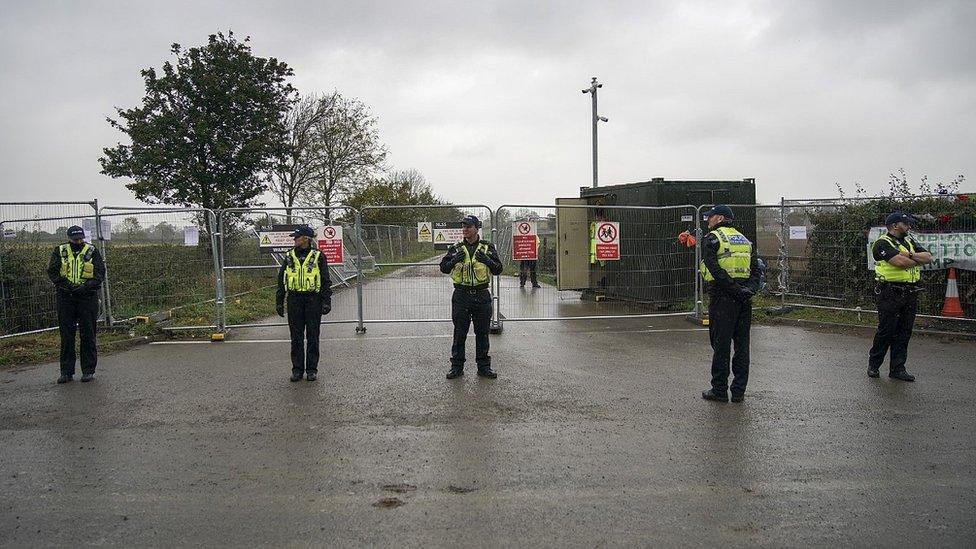
- Published3 October 2017
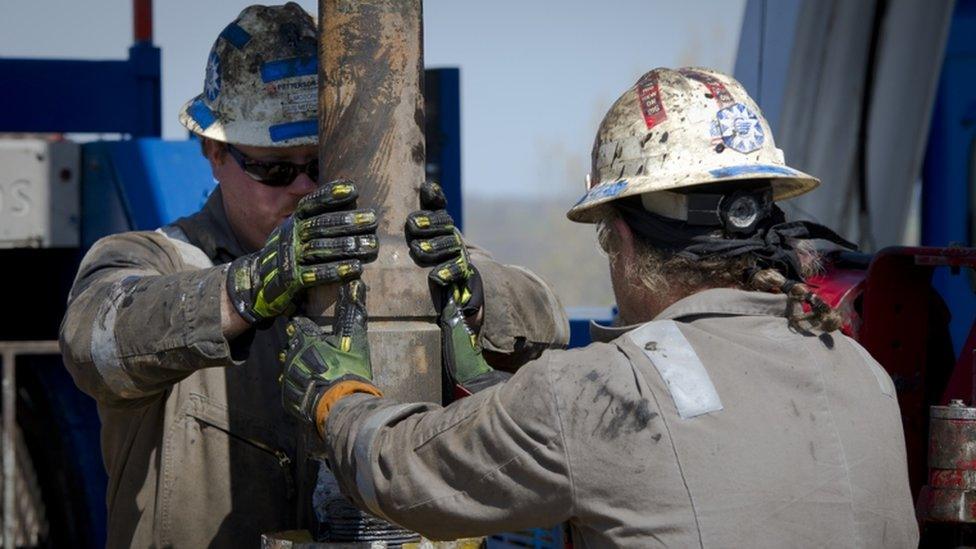
- Published17 August 2017
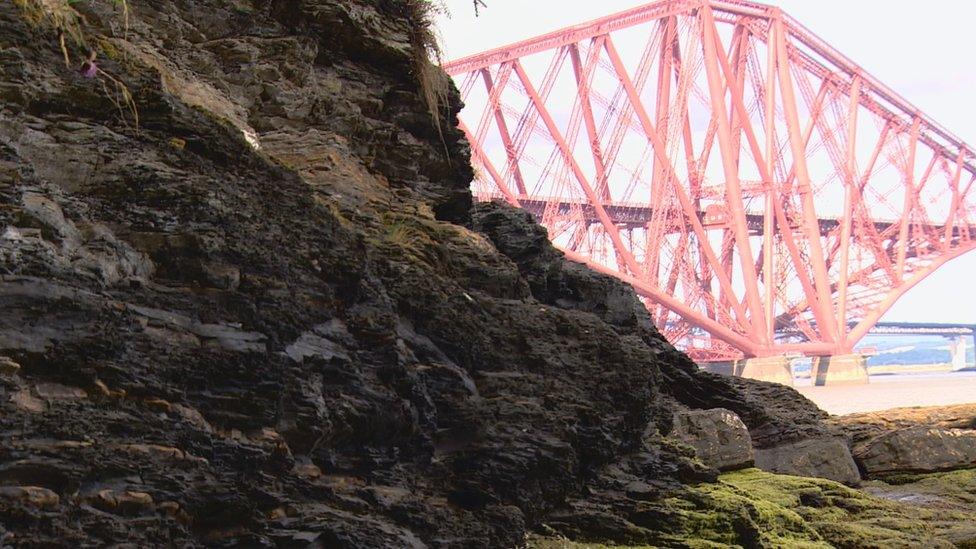
- Published3 October 2017
